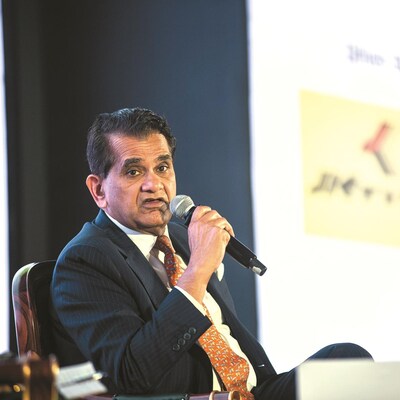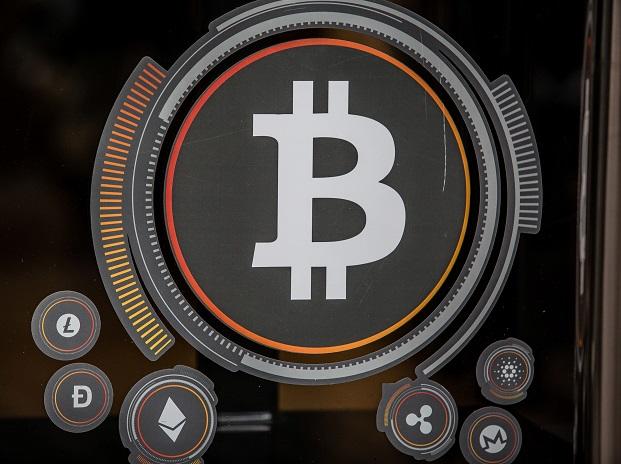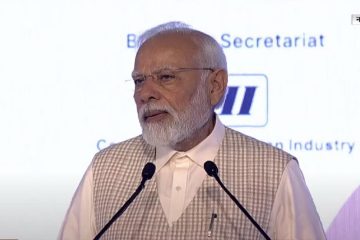)
Amitabh Kant, India’s G20 Sherpa (Photo: Priyanka Parashar)
India needs to create 10,000 large companies to achieve the size and scale of manufacturing necessary to meet its growth ambitions, Amitabh Kant, India’s Group of Twenty (G20) Sherpa, said on Thursday. He added that the country should aspire to 10 per cent growth driven by the manufacturing sector.
Speaking at the Business Standard Manthan event, Kant said that over the next five years, India should aim for 10 champion states to grow at a rate exceeding 10 per cent. This growth can drive India’s economy to expand by 9-10 per cent for the next three and a half decades, akin to the growth trajectories of South Korea, China, Taiwan, and Singapore.
“We need to empower states to lead transformation. We require 10-11 champion states… What the Centre has initiated, the states must now follow… Reforms are essential. They must dismantle rules and regulations from the Socialist era,” Kant expressed.
The former NITI Aayog chief executive officer stressed the importance of nurturing large companies with backward and forward integration with the micro, small and medium enterprise (MSME) sector to generate employment.
“India has too few large companies. It has an abundance of MSMEs. There’s no crime in growing big.”
Simultaneously, Kant advocated for India to become the world’s largest startup hub, challenging Silicon Valley. He suggested allowing private capital, including investments from Indian pension funds, insurance companies, and family businesses not yet involved in the startup ecosystem.
“The government must take the lead in ensuring Life Insurance Corporation of India invests in startups,” Kant urged.
Kant highlighted the necessity for Indian companies to integrate into the global value chain, underscoring the potential gains from the export market.
“Export markets offer five times the value. The minute you view the world as your market, you target not just India’s 1.4 billion people but the 5 billion transitioning from poverty to the middle class,” Kant explained.
Regarding foreign direct investment (FDI) policy, Kant stressed the need for simplicity and accessibility across sectors, encouraging foreign investment.
“India needs to allow FDI across sectors. We need to make sure that we handhold every large company which is not coming to India, to talk to them. We need to ensure that for people looking for alternatives to China, no country is better poised than India,” he asserted.
He emphasised the importance of prioritising manufacturing to create quality jobs, aligning with India’s goal to become a $30-$35 trillion economy by 2047. With 40 per cent of the population dependent on agriculture, Kant advocated for a shift towards manufacturing employment.
Kant outlined India’s agenda for development, emphasising the importance of states’ growth in manufacturing, sustainable urbanisation, agricultural productivity, and the services sector.
He also stressed the need for increased private investment to support India’s growth ambitions.
“To achieve 10 per cent growth, investment rates must reach 40 per cent. This cannot rely solely on government capital expenditure,” Kant remarked.
On the topic of cryptocurrency, Kant expressed opposition to its use as currency but recognised its potential as an asset class, subject to individual perceptions in India.
Reflecting on his experiences as the G20 Sherpa, Kant described the challenges of achieving consensus, particularly regarding the Russia-Ukraine conflict. After 300 hours of negotiations and 16 drafts, consensus was reached, marking unprecedented success in addressing global issues.
“It was a lot of touch and go, but we achieved full consensus. This is the first time that even the United Nations accepted that we brought their agenda of sustainable development goals, growth, Russia Ukraine crisis — and achieved success in a manner which has never been achieved by any other multilateral bodies before,” Kant said.
Looking ahead, Kant acknowledged the geopolitical challenges, including the Israel-Hamas conflict, which will be discussed during the Brazilian presidency. He anticipated discussions among G20 members in the coming days, recognising the complexities of intertwining development and geopolitical issues.
“It will be an enormous challenge. Development issues get coloured with geopolitical issues,” he added.
First Published: Mar 28 2024 | 11:49 PM IST
Note:- (Not all news on the site expresses the point of view of the site, but we transmit this news automatically and translate it through programmatic technology on the site and not from a human editor. The content is auto-generated from a syndicated feed.))



